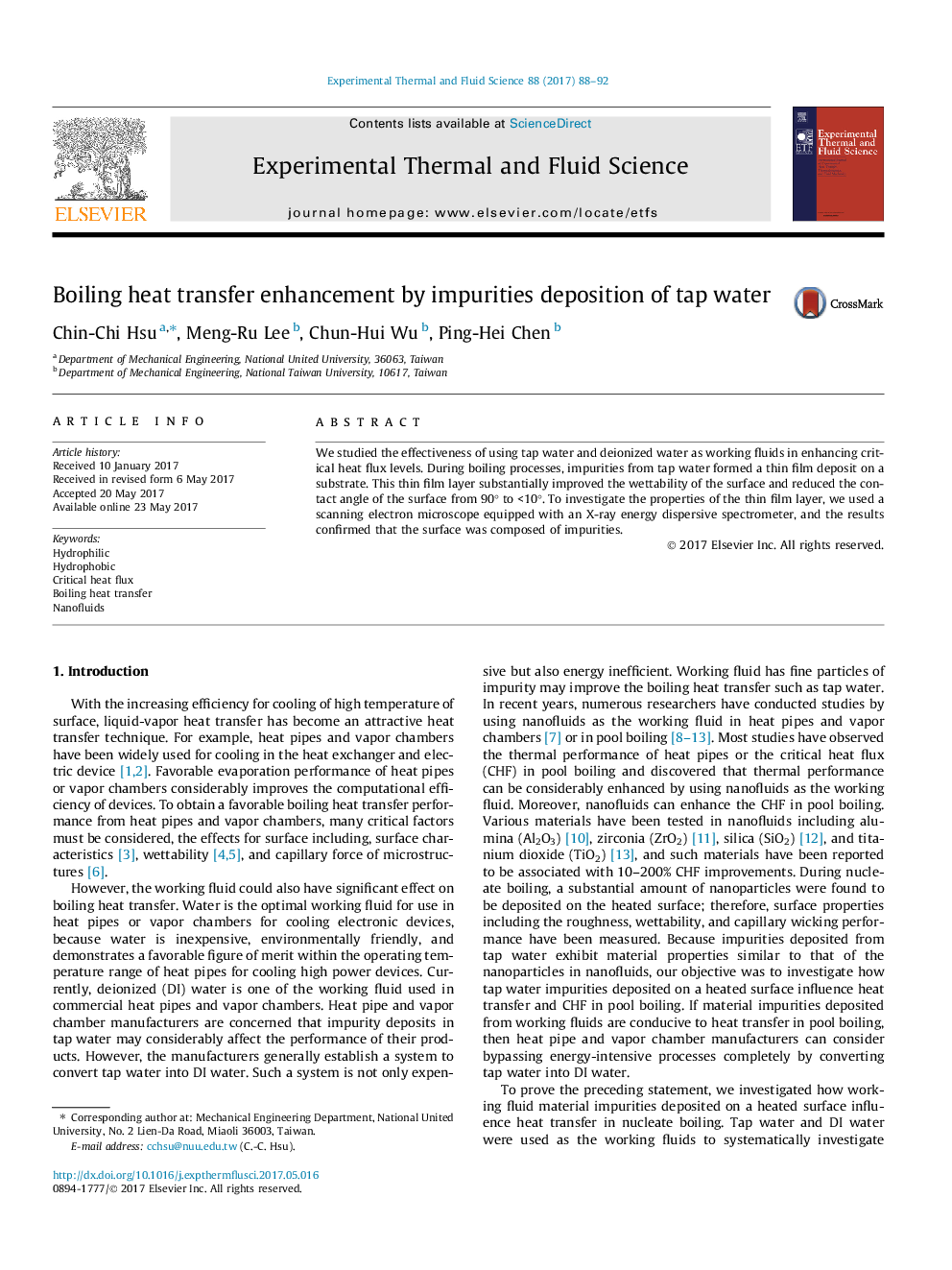| Article ID | Journal | Published Year | Pages | File Type |
|---|---|---|---|---|
| 4992614 | Experimental Thermal and Fluid Science | 2017 | 5 Pages |
Abstract
We studied the effectiveness of using tap water and deionized water as working fluids in enhancing critical heat flux levels. During boiling processes, impurities from tap water formed a thin film deposit on a substrate. This thin film layer substantially improved the wettability of the surface and reduced the contact angle of the surface from 90° to <10°. To investigate the properties of the thin film layer, we used a scanning electron microscope equipped with an X-ray energy dispersive spectrometer, and the results confirmed that the surface was composed of impurities.
Related Topics
Physical Sciences and Engineering
Chemical Engineering
Fluid Flow and Transfer Processes
Authors
Chin-Chi Hsu, Meng-Ru Lee, Chun-Hui Wu, Ping-Hei Chen,
